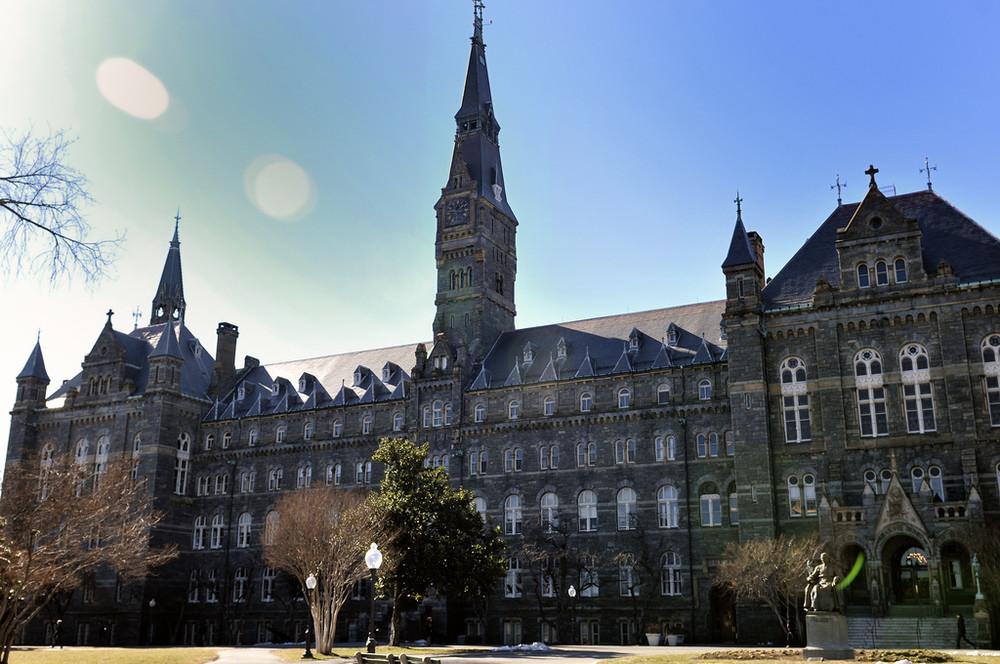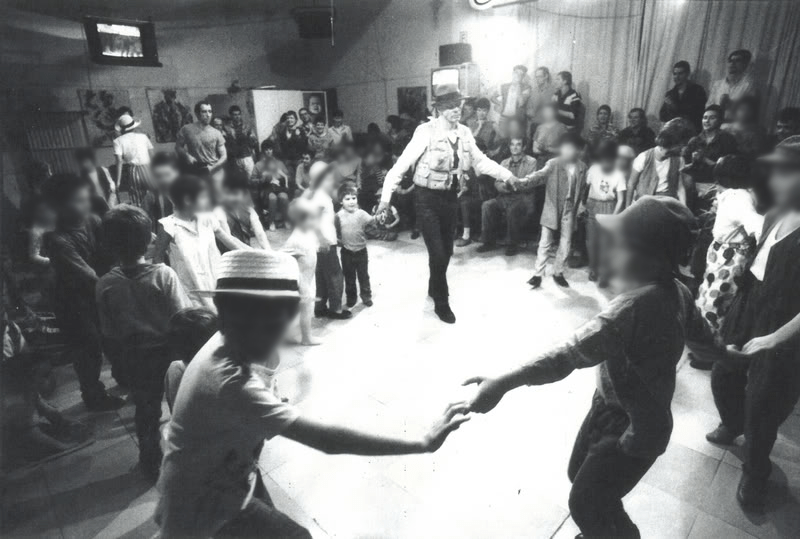
Georgetown University made the Top Ten on our list of the most militarized schools in America. Photo via Flickr user oasoea
This story appears in the November Issue of VICE.
Why does US intelligence get it wrong so often? Why does every Islamic State, or Arab Spring, or move by Putin come as a surprise? Why do wedding parties and hospitals continue to be bombed?
Videos by VICE
The official answers have not changed since 9/11: “We couldn’t know,” or “Intelligence is an art and not a science,” or “We’re doing the best we can.” Another commission finds another dot left unconnected. Intelligence failure splinters into a partisan political fracas.
And then what happens? We reorganize. Budgets grow. We collect even more data from cyber bulk or with drones and satellites that produce even higher-definition images. Not a lot goes into asking whether our strategy is correct, or whether “intelligence” is intelligent enough for the challenges of the real world. Now, for the first time, we have some insight into why that is.
VICE News has analyzed the educational backgrounds of more than 90,000 workers in the national security community and gathered some intelligence of its own:
- Of the top 100 schools that educate this elite cadre tasked with protecting our nation, 20 are online diploma mills of dubious academic quality.
- Not one of the top 100 nationally ranked American liberal arts colleges is present in the top 100 universities and colleges that analysts and officers attended to get their bachelor’s degrees.
- The institutions that educate most of America’s spies and officers are Washington area appendages of the federal government or schools huddled near military and intelligence bases: Cochise College, Central Texas College, or the University of Central Florida.
- The most common majors of the group are in the information sciences and systems management. History is nowhere to be seen on the list, international relations barely ranks, and foreign language expertise is embarrassingly absent. It seems the national security community couldn’t care less about the outside world.
Four kinds of institutions dominate VICE News’s ranking of the 100 most militarized schools in America: online schools; schools in Washington, DC, Maryland, and Virginia; research universities involved in contract work for national security clients; and schools that teach “homeland security” and “police intelligence,” academic fields that didn’t exist before 9/11 and now are offered by more than 250 institutions.
Read the full report now on VICE News.
Many of these universities have profited mightily as training establishments for counter-terrorism and domestic security professionals, bringing in more than $15 billion a year through national security contracts, grants, and tuition. The schools and their post-9/11 curricula don’t broaden students’ horizons—they serve federal government needs. Of course, not every federal worker needs to be a Middle East scholar, but the list shows how significantly the demands of cyber security and big-data analytics have changed the way people who enter the intelligence field are educated.
The image portrayed since 9/11 is that the intelligence community had an about-face, away from technical data collection and remote bombing to more human intelligence and a greater proficiency in regional and cultural understanding. The facts say otherwise. Not only did the intelligence world become more technical and clogged with data, but the role of the American university shifted from educator to service provider. Today our defenders are taught at training outposts that serve a greater master.
Click image to enlarge

William M. Arkin is co-author of the award-winning book Top Secret America. He has collected biographies of intelligence community workers and people who have held top secret clearances since 9/11. Alexa O’Brien is an investigative journalist and was shortlisted for the Martha Gellhorn Prize for Journalism in the UK.
More
From VICE
-

Photo by John Greim/LightRocket via Getty Images -

Stanford University's Hoover Tower -

Children at the Friedrichshof Commune dance with renowned artist Joseph Beuys. Inka, aged four, holds his right hand. -

